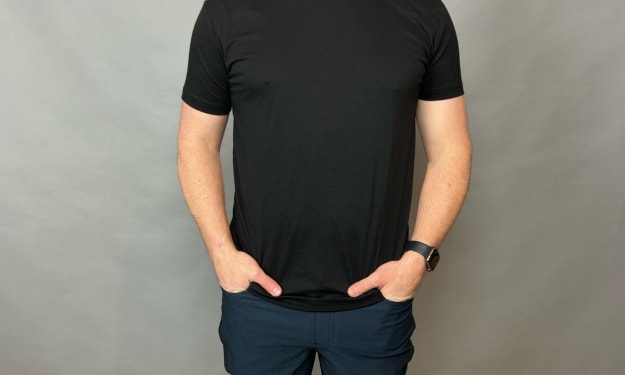
First and foremost, the term colorism means discrimination towards an individual based on skin color usually within the same race. The fashion world is a great example of colorism, it still showcases dark skin as taboo which results in discrimination within the community and from the fashion industry.
The fashion industry reinforces the stereotypes of black dark-skinned people; not giving them a chance to move past them because they are not getting the exposure. The divide between light and dark skin grows more and more as colorism is reinforced; going as far as whitening products becoming a popular purchase for those lightening their skin.

Itwasn’t black people who created the colorism strain, it was brought onto them by years and years of European influences, thus creating the belief the lighter the better. It was only 400 years ago black people were owned by caucasians and enslaved to work and sadly white supremacy still takes over and sneaks its way toward the fashion world. Even in now we are seeing instances of racism, Gucci and Prada were victim of blackface creating “fashion pieces” that were racist to the black community. Instances like this need to be brought to light so more people could see that blackface is wrong and learn the reason why.
The only way for the black community to move on from colorism is to go against the white supremacy system. For everybody to realize european features and lighter skin isn’t the only face of beauty.
Vogue has been in the industry for over a century but they have only recently started to incorporate darker models. Before 2012 models such as Rihanna and Halle Berry were on the cover of Vogue but are both light skin. In 2012 Serena Williams was the first black dark skin model to be on the cover of Vogue; following her was Lupita Nyong’o and Michelle Obama. Although Vogue’s journey to include more dark skin models has imporved they must realize that they have 24.4 million readers globally, their small attempt of representation must grow. People from all over the world need to see the normality of dark skin models and fashion magazines, brands, blogs, etc need to be aware of colorism, start uplifting and including black dark skin models.
Society is becoming more aware of the problems dark skins face and there is a slow incline of representation, let us hope Vogue and many other fashion magazines keep up this momentum.

As the fashion world evolves we are seeing more exposure to black models however, a lot still believe tokenism is completely fine. Tokenism is the practice of only including a few people of a minority, using that small group to represent every single person of that minority. This is seen everywhere in fashion, once they find one black dark skin model they keep them and don’t search for more. Lupita Nyong’o is an example, she’s been on the cover of Vogue 4 times, there are a few other dark skins but she is the darkest of them all.
What vogue should do is make an effort to discover new black models of darker skin. By doing this they’ll show a diverse range of skin tones by different models, different origins, and experiences; allowing as much exposure for the black models in the world.
Tokenism doesn’t improve a companies image by including one minority, it portrays the bare minimum a company went through to be inclusive. It doesn’t improve the problem with diversity and colorism, it masks the real issue of diversity. It makes it even worse because no real progress or growth has been made.

Colorism has led dark skins to purchase bleaching products to lighten their skin. They have always been criticized for their features like large lips, big nose, and stereotypical large/curvy men and women. Socially we’ve learned that black people should embrace their beauty and forget about stereotypes.
The one thing that can’t seem to be forgotten is the idea that dark skin is unattractive.
Famous model Blac Chyna partnered with Whitenicious to launch her “X Blac Chyna Diamond Illuminating and Lightening Cream” on November 25, 2018, in Lagos, Nigeria, the cream is a luxury product on sale for $250. Many are criticizing the product because Chyna is taking advantage of the people in Nigeria. Chyna specifically chose to launch the product in Nigeria because she knew there was a demand for it. Nigerians are at a state of vulnerability because its been pushed inside their heads that dark skin is unattractive since they were young.
“77 percent of Nigerian women use skin-lightening products.” according to a 2011 report by the World Health Organization.
The product promotes lighter skin to a demographic of dark black people, this launch will only make the situation worse and add another product to the lightening creams.

Once many people in the fashion industry encourage and bring up the issue of skin lightening in Nigeria, black dark-skinned people will recognize their beauty.
The fashion industries effort to incorporate dark models is unappreciated and will only be thankful once colorism and tokenism is nowhere to be seen. Black people need representation of dark skin, its the only way they can learn to love their skin. As for the fashion industry a bigger effort for representation would be appreciated. The non-inclusivae fashion brands will receive praise for taking diversity seriously and dark skinned people will enjoy the representation of beautiful dark skin.
About the Creator
Kaiya
Helllooo! I'm an unemployed, fashion student (◠‿◠✿) I want to use this platform to bring awarness to topics I'm interested in and also share my passions!






Comments
There are no comments for this story
Be the first to respond and start the conversation.